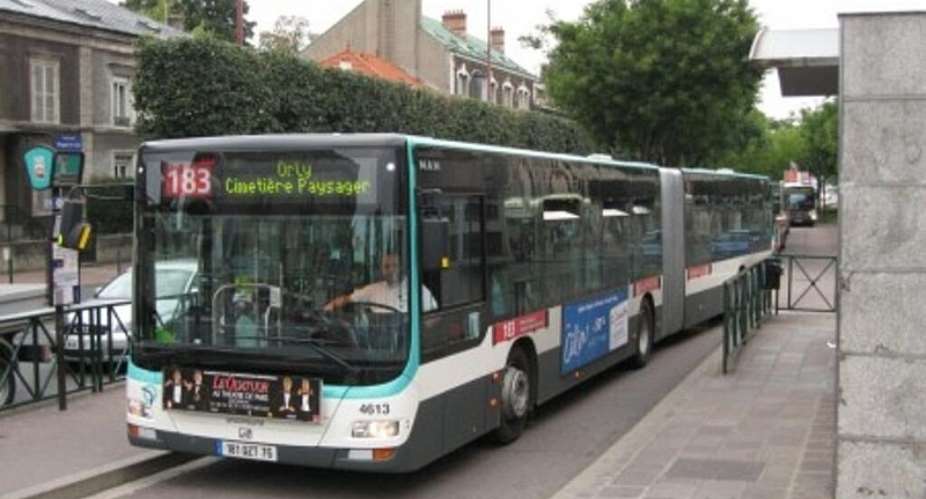A shortage of drivers is wreaking havoc on public transport networks around France. The disruptions and increased waiting times are taking their toll on frustrated commuters. Transport companies are under pressure to recruit hundreds of drivers by the end of the year.
The situation has been tense for some time now, and was particularly noticeable to users of buses, trams and trains at the start of the 2022 school year in early September.
From Paris to Lyon, Bordeaux, Lille and Rennes - major cities are concerned by the lack of bus and train drivers in the public transport sector.
There are some 75 transport operators running services for the outer Paris suburbs (Ile-de-France) in the Optile network. This spans over 1,300 lines, 5,500 buses, making some 258 million trips per year.
All of the operators admit they have had difficulty recruiting the necessary numbers of drivers in recent months.
Youenn Dupuis, general manager of Optile says existing drivers have been under enormous pressure dealing with angry customers who have seen 7-8 percent of their services cut due to recruitment problems.
In areas where there are no train connections, bus passengers have seen their wait times jump up to 40 minutes, he says.
Image change
There are around 1,029 driver positions to be filled at Keolis, one of the major companies in the Optile network, which operates around a hundred bus networks across France.
Dupuis, who is also deputy director of Keolis in the Ile-de-France region, says the bus driving profession has unfortunately suffered from a bad image which needs to be shaken off before things can improve.
"The salaries are not low," he told Le Parisien newspaper last week.
"Drivers are being paid €2,500 per month before tax, that's 30 percent more that the minimum wage, that's better than a young teacher" he explains, adding that his company offers good health cover and flexible working hours.
On top of that, he points out that public transport will increasingly represent an area of economic growth, as the government seeks to invest in greener technology and alternatives to the private car to reduce pollution.
"It's a sector for the future, right at the heart of the ecological transition," Dupuis says.
Competition is tougher
The RATP, the Parisian transport company which runs the metro, buses, trains and trams, services 330 transport lines for around 3 million passengers.
Of 1,500 job vacancies this year, only 700 have been recruited.
Due to the lack of personnel, the company has simply had to cut the number of runs on certain bus lines, causing huge queues, and overloaded buses.
"We've never had these kinds of recruitment problems before," Alexandre Guyot, human resources director for the bus department told Le Parisien newspaper.
"We received 5,400 applications, but due to our high expectations, we need more than that," he says.
"The competition has become tougher, and some employees have chosen a different professional lifestyle," he says.
The RATP has launched a vast recruitment campaign, underlining the fact that a diploma is not a prerequisite. Advantages include paid training, bonuses and housing aid. "It's a profession that is stable and has meaning".
It is looking to fill 800 bus driver positions by the end of 2022.
Covid reset
The SNCF, the national train company, also says the situation in Paris is dire.
Since late August, it has been forced to remove 19 trains daily from its surburban RER C line schedule because it lacks around fifty drivers.
School transport in regional areas has also been affected. At the beginning of September, around 8,000 bus driver positions were vacant across France, 400 of them in the northern Hauts-de-France region.
The region is investing more than 3 million euros to train new drivers, but it takes time, and local MPs say the state needs to step up its help.
As in various sectors across the country, the Covid pandemic has pushed people to seek new jobs.
Of the hundred or so drivers from the Delgrange company based in the north, more than twenty have left since Covid-19.
"Some left for the transport of goods, others took the opportunity to completely change jobs," explains Mathilde Vincent, the company's human resources manager.





 Lay KPMG audit report on SML-GRA contract before Parliament – Isaac Adongo tells...
Lay KPMG audit report on SML-GRA contract before Parliament – Isaac Adongo tells...
 Supervisor remanded for stabbing businessman with broken bottle and screwdriver
Supervisor remanded for stabbing businessman with broken bottle and screwdriver
 NDC watching EC and NPP closely on Returning Officer recruitment — Omane Boamah
NDC watching EC and NPP closely on Returning Officer recruitment — Omane Boamah
 Your decision to contest for president again is pathetic – Annoh-Dompreh blasts ...
Your decision to contest for president again is pathetic – Annoh-Dompreh blasts ...
 Election 2024: Security agencies ready to keep peace and secure the country — IG...
Election 2024: Security agencies ready to keep peace and secure the country — IG...
 People no longer place value in public basic schools; new uniforms, painting wil...
People no longer place value in public basic schools; new uniforms, painting wil...
 'Comedian' Paul Adom Otchere needs help – Sulemana Braimah
'Comedian' Paul Adom Otchere needs help – Sulemana Braimah
 Ejisu by-election: Only 33% of voters can be swayed by inducement — Global InfoA...
Ejisu by-election: Only 33% of voters can be swayed by inducement — Global InfoA...
 Minority will expose the beneficial owners of SML, recover funds paid to company...
Minority will expose the beneficial owners of SML, recover funds paid to company...
 Prof. Opoku-Agyemang has ‘decapitated’ the NPP’s strategies; don’t take them ser...
Prof. Opoku-Agyemang has ‘decapitated’ the NPP’s strategies; don’t take them ser...
